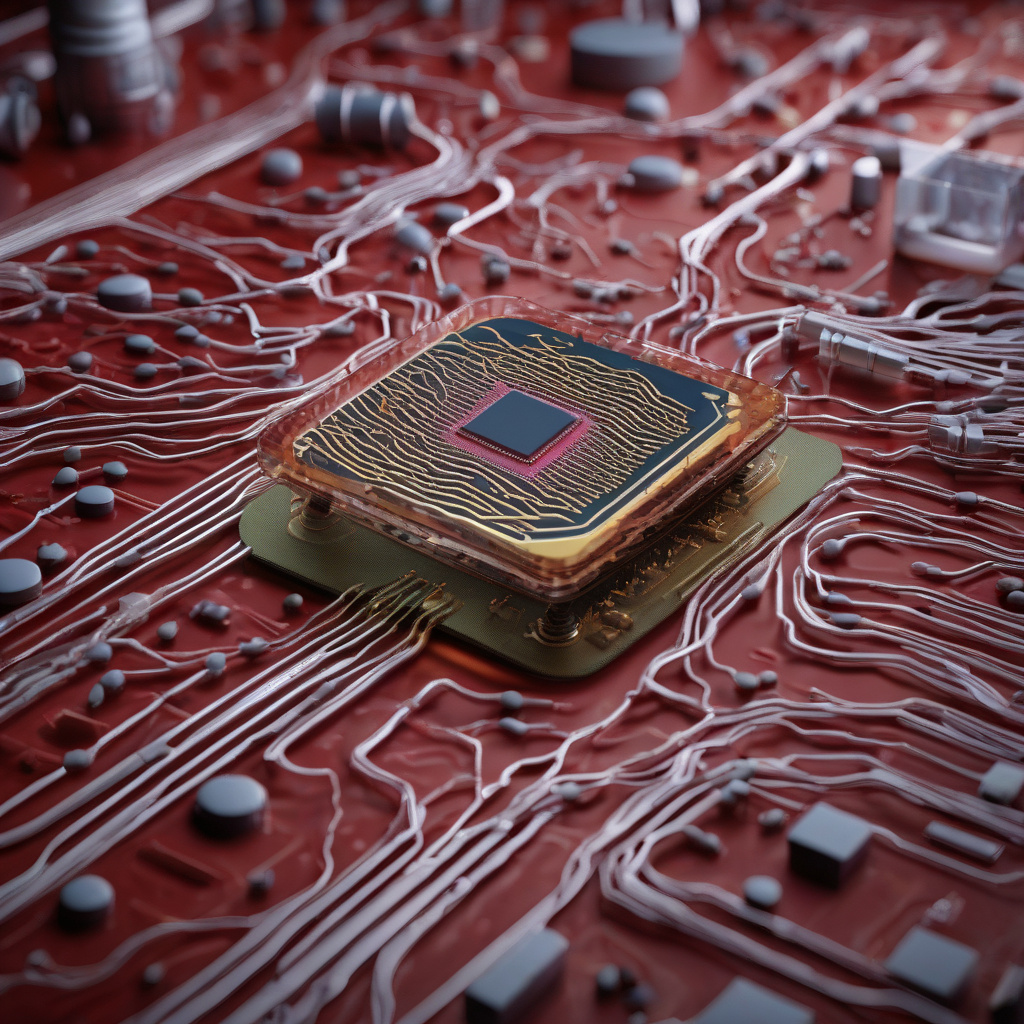Tiny Chip Mimicking Human Blood Vessels Could Transform Heart Disease Diagnosis
In the realm of medical innovation, scientists in the U.S. have recently made a groundbreaking advancement that could revolutionize the diagnosis of heart disease. This pioneering development comes in the form of a tiny chip that has the remarkable ability to mimic real human blood vessels with astounding accuracy.
The chip, designed by a team of dedicated researchers, is a testament to the incredible progress being made in the field of medical technology. By replicating the intricate structure and function of human blood vessels on a miniature scale, this innovative device has the potential to provide a deeper understanding of how heart disease progresses and help in the early detection of this life-threatening condition.
One of the key advantages of this tiny chip is its ability to recreate the complex environment of human blood vessels, allowing researchers to study the effects of different drugs and treatments with greater precision. This could lead to more effective therapies for heart disease and other cardiovascular conditions, ultimately saving lives and improving patient outcomes.
Furthermore, the chip’s small size and portability make it a convenient tool for medical professionals, enabling them to conduct real-time monitoring and analysis outside of a traditional laboratory setting. This could significantly enhance the efficiency of diagnostic procedures and pave the way for personalized treatment plans tailored to each patient’s unique needs.
The potential applications of this innovative chip extend beyond heart disease diagnosis. Its ability to mimic human blood vessels opens up a world of possibilities for studying a wide range of vascular conditions, including stroke, hypertension, and peripheral artery disease. By providing a platform for in-depth research and experimentation, this technology has the potential to drive forward our understanding of cardiovascular health and transform the future of patient care.
As we witness the rapid evolution of medical technology, it is inspiring to see how innovations like the tiny chip mimicking human blood vessels are reshaping the landscape of healthcare. With continued research and development, we can look forward to a future where the diagnosis and treatment of heart disease are more precise, effective, and accessible than ever before.
In conclusion, the creation of this groundbreaking chip marks a significant step forward in the fight against heart disease. By replicating the complexity of human blood vessels in a tiny, portable device, researchers have unlocked new possibilities for diagnosis, treatment, and research in the field of cardiovascular health. As we move towards a future where medical technology continues to advance at a rapid pace, innovations like this serve as a shining example of the transformative power of science and innovation in improving human health and well-being.
heart disease, medical technology, diagnosis, cardiovascular health, innovation












